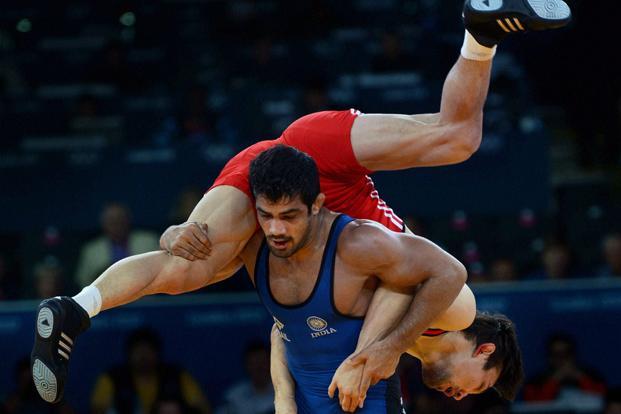Wrestling, a sport rooted in ancient history and revered for its fierce competition and physical prowess, has long been a staple of the Olympic Games. The question on the minds of many is, ‘Is wrestling an Olympic event?’ This query delves into the rich legacy and enduring presence of wrestling in the Olympic arena. From the earliest days of the modern Olympics to its tumultuous removal and subsequent reinstatement, wrestling’s journey as an Olympic sport has been a rollercoaster of triumphs and challenges.
Join us as we explore the intricate tapestry of wrestling’s Olympic legacy, examining its significance, evolution, and ongoing relevance amidst the ever-changing landscape of sports and competition.
History and Origins of Wrestling
Wrestling is one of the oldest sports known to humankind, with a history dating back to ancient times. The sport can be traced back to the ancient civilizations of Babylon, Egypt, and Greece. In fact, wrestling was a key feature of the ancient Olympic Games in Greece. The Greeks valued wrestling for its physical and mental benefits, considering it an essential part of a well-rounded education.
Origins of Wrestling in Ancient Civilizations
Ancient Egyptian hieroglyphics and artwork depict various forms of wrestling, showcasing its significance in their culture. In Babylon, wrestling was a popular form of combat training for soldiers. However, it was the Greeks who elevated wrestling to an art form, incorporating it into their mythology and cultural practices.
The Greeks believed that wrestling was a way to honor the gods, with legendary figures like Heracles being revered for their wrestling prowess.
Evolution of Wrestling as a Competitive Sport
Over time, wrestling evolved from a military training exercise to a competitive sport practiced in arenas and stadiums. The sport spread across different regions, each adding its unique rules and techniques to the practice.
Modern wrestling as we know it today, with structured rules and weight classes, began to take shape in the 19th century when organized competitions and wrestling associations were established.

Wrestling in Ancient Olympic Games
Wrestling holds a prominent place in the history of the Olympic Games, dating back to the ancient times. In the original Olympic Games of ancient Greece, wrestling was one of the core sports that exemplified physical prowess and skill.
Significance in Ancient Greece
Wrestling was considered a vital sport in Ancient Greece, symbolizing strength, agility, and strategy. Competitors engaged in intense hand-to-hand combat, showcasing their athletic abilities and dedication to the sport.
Rules and Traditions
Wrestling matches in the Ancient Olympic Games had strict rules and regulations governing fair play and conduct. Matches often lasted until one wrestler conceded defeat or was pinned to the ground. The sport emphasized physical endurance and mental resilience which contributed to its popularity.
Evolution of Wrestling in Modern Olympic Games
Wrestling has been an integral part of the Olympic Games for over a century, dating back to the ancient Olympics in Greece. In the modern era, wrestling has evolved significantly to adapt to changing times and audience preferences.
Introduction of Freestyle and Greco-Roman Wrestling
Since its inception in the 1896 Athens Olympics, wrestling has undergone several transformations. The introduction of freestyle and Greco-Roman wrestling has added diversity and excitement to the sport, showcasing different styles and techniques.
Freestyle wrestling allows for greater freedom of movement and emphasizes takedowns and ground fighting, while Greco-Roman wrestling focuses on throws and clinching, forbidding the use of legs in offense.
Modern Olympic Wrestling Events
Currently, the Olympic wrestling program includes both men’s and women’s freestyle events along with men’s Greco-Roman events. Wrestlers from various nations compete for medals in different weight categories, showcasing their skills and athleticism.
In recent years, efforts have been made to promote gender equality in wrestling, leading to the inclusion of women’s freestyle wrestling as an Olympic event.
Challenges Faced by Wrestling in the Olympic Movement
Wrestling, being an integral part of the Olympic Games, has faced its share of challenges within the Olympic movement. One of the significant challenges revolves around the sport’s inclusivity and gender equality, reflecting on its relevance as an Olympic event.
Gender Disparities
Historically, wrestling has faced criticism for its lack of gender equality in the Olympic program. Efforts have been made to address this issue, with the introduction of women’s wrestling in the 2004 Athens Olympics. Despite this, there are ongoing discussions on further enhancing gender parity in the sport.
Additionally, the perception of wrestling as a male-dominated sport has hindered progress towards equal representation and opportunities for female wrestlers on the Olympic stage.
Format and Rule Changes
Another challenge wrestling faces in the Olympic movement relates to the constant evaluation and modification of its formats and rules. The sport must adapt to the evolving preferences of the audience and align with the International Olympic Committee’s goals to remain relevant in the Olympic program.
- Implementation of new weight classes and scoring systems requires extensive planning and approval from the relevant governing bodies.
- Striking a balance between tradition and innovation is crucial to retaining wrestling’s appeal to both traditional fans and newer audiences.
Importance of Wrestling as an Olympic Sport
Wrestling holds a significant place in the Olympics, showcasing the rich history and tradition of this ancient sport. Being one of the original sports in the ancient Olympic Games, wrestling has retained its popularity and relevance through the years, drawing athletes and fans from all corners of the world.
Preservation of Tradition and History
Wrestling’s inclusion in the Olympics helps preserve the sport’s historical significance, providing a platform for athletes to honor the traditions of their predecessors.
Additionally, the Olympic stage allows wrestlers to showcase their skills and techniques, highlighting the artistry and physical prowess required in this demanding sport.
Global Participation and Unity
As an Olympic sport, wrestling promotes global participation, encouraging athletes from diverse backgrounds and cultures to compete on a level playing field.
This inclusivity fosters a sense of unity and camaraderie among nations, emphasizing the universal language of sports and the values of respect and sportsmanship.
Frequently Asked Questions
-
- Is wrestling still an Olympic event?
- Yes, wrestling is an Olympic sport that has been part of the Olympic Games since ancient times.
-
- How many types of wrestling are part of the Olympics?
- There are two styles of wrestling that are part of the Olympic program: Greco-Roman wrestling and Freestyle wrestling.
-
- Why was wrestling almost removed from the Olympic Games?
- Wrestling was nearly removed from the Olympic Games in 2013 due to its declining popularity and other factors, but it was later reinstated after efforts from the wrestling community.
-
- What is the history of wrestling in the Olympics?
- Wrestling has a long history in the Olympics, dating back to the ancient Olympic Games in Greece. It has been a staple sport in the modern Olympic Games since their inception in 1896.
-
- How are wrestlers qualified to compete in the Olympics?
- Wrestlers earn spots in the Olympic Games through a combination of qualifying tournaments, rankings, and wildcard entries.
Final Thoughts: Wrestling’s Olympic Impact
After exploring the legacy of wrestling in the Olympic Games, it is evident that wrestling holds a significant place in the history and tradition of the Olympics. Despite some challenges and controversies throughout the years, wrestling has managed to maintain its status as a core Olympic sport. The sport’s rich history, cultural significance, and global fan base make it a valuable addition to the Olympic program. As we reflect on the question, “Is wrestling an Olympic event?” we can confidently say that wrestling not only is an Olympic event but also plays a crucial role in shaping the spirit of the Games. Let’s continue to celebrate and support the enduring Olympic legacy of wrestling.



